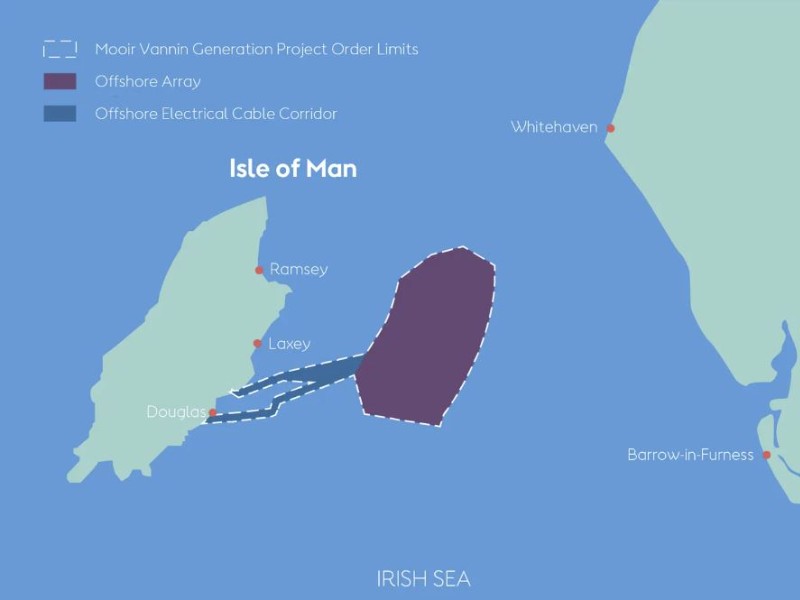
Missed deadlines and at-risk policies undermine Isle of Man’s roadmap to net-zero targets
The Isle of Man Government is facing growing pressure to accelerate its climate change efforts after the latest official report revealed a number of critical targets are either ‘at risk’ or have already been missed.
The 2024-2025 Climate Change Transformation Report outlines progress made under the Climate Change Plan 2022–2027. It provides a sector-by-sector update on the Island’s efforts to cut greenhouse gas emissions and transition to a net-zero economy.
But the report highlights that some of the most important deliverables – particularly around electricity and buildings – are significantly behind schedule.
Legally binding targets
Under the Climate Change Act 2021, the Isle of Man is required by law to reduce its carbon emissions by at least 35 percent by 2030, with a further target of 45 percent by 2035 and net-zero by 2050. The 2030 milestone includes a specific requirement for the Island’s electricity supply to be fully decarbonised.
However, the report confirms that the energy strategy to achieve 100 percent carbon-neutral electricity by 2030 is currently “at risk”, along with the associated goal to generate at least 20 megawatts of local renewable energy by 2026.
Decarbonising electricity is fundamental to the 2030 target, as this goal is heavily reliant on the delivery of a second electricity interconnector between the Isle of Man and the United Kingdom, a project that is estimated to cost in excess of £100 million.
Without it, the government may be unable to meet the emissions reduction required in law. If the 35 percent reduction is not achieved by 2030, it would constitute a breach of the Climate Change Act 2021. However, the Department of Environment, Food and Agriculture believes there are viable alternatives, such as reducing energy exports.
Missed and at-risk targets
Several other climate commitments are either delayed or in jeopardy. Three deliverables in the buildings sector – developing a Low Carbon Heating Strategy, amending building regulations, and updating planning law – have already missed their deadlines. Six further actions, including the government’s own building retrofit programme and rollout of Energy Performance Certificates, are described as “at risk”.
The buildings sector has otherwise seen some success, with more than 3,800 low-income households supported through energy efficiency schemes, and a new ban on fossil fuel heating in new builds coming into effect in January 2025.
In the business sector, emissions have fallen by nearly 19 percent since 2018, while building emissions have dropped by more than 26 percent. However, the report notes that much of the recent decline is attributed to milder winter weather and higher energy prices, rather than deliberate climate action.
Emissions in relation to 2030 goal
The most recent greenhouse gas inventory, covering 2023, shows the Island produced 573,880 tonnes of carbon dioxide equivalent – a 3.8 percent reduction compared to the 2018 baseline. Fewer than five years remain by which a further 31.2 percent reduction in emissions must be achieved, if government is to meet its legal obligations.
Energy sector emissions have actually risen by 21 percent since 2018, partly due to increased energy exports.
The government’s Peatland Restoration Project, Farm Carbon Calculator, and work on blue carbon and habitat mapping are flagged as positive developments on the land use and sequestration side. However, the report cautions that initial estimates of carbon capture may be overestimated and are due to be reviewed in 2026.
Public awareness, but misinformation spreads
Public engagement is described as a success story. More than 13,000 people attended Earth Day activities last year, and training in carbon literacy has been completed by over 400 public sector employees.
However, the report raises concerns about a rise in climate misinformation and the challenge of embedding change across government and industry. Capacity shortfalls, resistance to change, and lack of skills in the construction sector are identified as ongoing barriers.
What happens next?
The government has committed to developing a fully costed roadmap for electricity decarbonisation by the end of the year, and the Climate Change Fund continues to support projects across energy, transport, and nature restoration.
Tynwald members are expected to scrutinise the findings of the report next month.
Listen to Christian Jones in conversation with Environment, Food and Agriculture Minister Clare Barber:


 Police appeal to find three individuals to help with investigation
Police appeal to find three individuals to help with investigation
 Dates for offshore windfarm scrutiny meetings announced
Dates for offshore windfarm scrutiny meetings announced
 Some residents in Onchan without power
Some residents in Onchan without power
 January's inflation rate stays the same
January's inflation rate stays the same